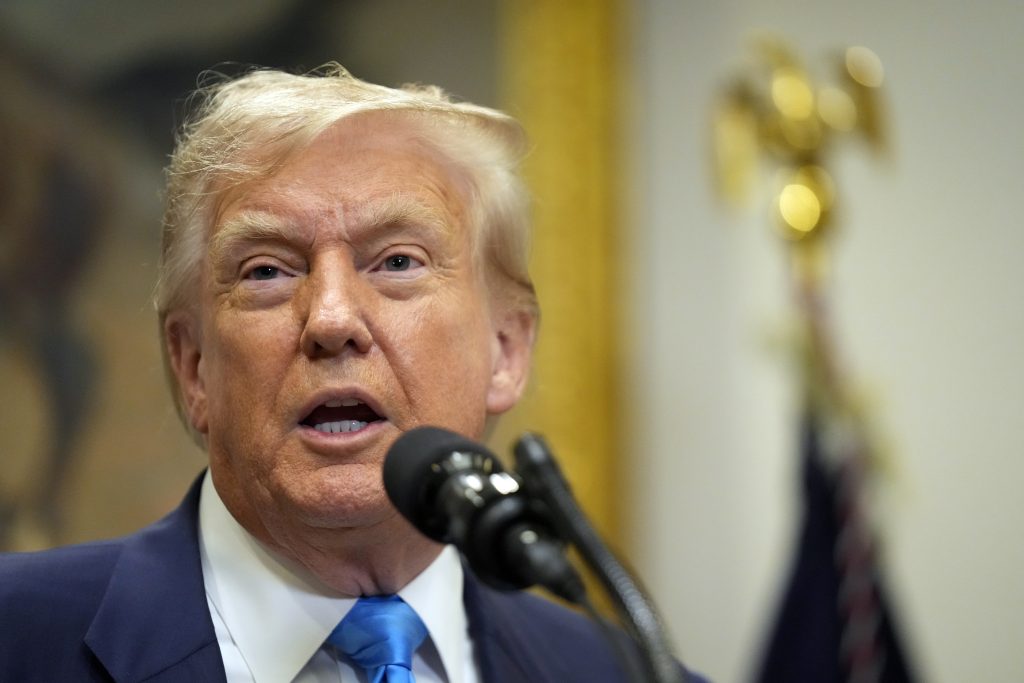U.S. President Donald Trump acknowledged Thursday that he hasn’t spoken to Canada ahead of a looming 35 per cent tariff set to take effect by midnight. While Trump hinted that Prime Minister Mark Carney “called,” there has been no confirmation from Carney’s office.
Tensions between the two countries have escalated rapidly in recent days. Trump earlier downplayed hopes for a deal in a social media post, citing Canada’s announcement to recognize a Palestinian state as a key irritant. While he said the move wasn’t a deal-breaker, he made clear he didn’t approve of the decision.
During remarks at the White House, Trump accused Canada of years of unfair trade practices and misrepresented some agricultural duties, claiming the country has “treated the United States badly.” He added, “We like Canada, I love Canada, I have so many friends in Canada but they’ve been very poorly led. All we want is fairness.”
Commerce Secretary Howard Lutnick went further, calling Canada’s foreign policy decisions “tone deaf” and suggesting the president wouldn’t ease off pressure unless Carney rolled back retaliatory tariffs and offered significant concessions. He also accused Ottawa of failing to address issues in the dairy sector.
Despite the hardline rhetoric, the White House said the tariffs would not apply to goods that comply with the Canada-U.S.-Mexico Agreement (CUSMA). Meanwhile, Mexico was granted a 90-day extension on trade talks following a phone call between Trump and Mexican President Claudia Sheinbaum, despite Mexico’s own recognition of a Palestinian state.
At the same time, Trump’s aggressive use of trade powers is facing legal scrutiny. In court Thursday, a federal appellate panel questioned whether Trump’s use of the International Economic Emergency Powers Act (IEEPA) to impose tariffs—without specific mention of tariffs in the law—was constitutional. Judges challenged the administration’s interpretation of executive authority, raising doubts about whether national security justifies duties on unrelated goods.
Observers like the Cato Institute, which filed an amicus brief against the tariffs, believe challengers may ultimately prevail. While no ruling was issued Thursday, the White House signaled the case may end up before the U.S. Supreme Court.

